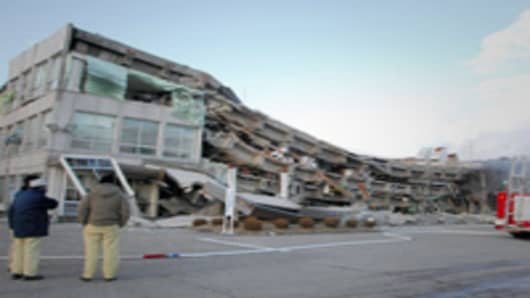Despite record inflows into the Japanese ETF, options traders are less than optimistic about a Japanese recovery.
An investor in the iShares MSCI Japan Index Fund sold April 11 calls, a bet the shares are unlikely to hit $11. Meanwhile, implied volatility rose on Jan. 12 puts, suggesting they're being purchased. The iShares Japan Index Fund closed at $10.57 Wednesday.
"The activity we're seeing is call selling and put buying, and both are fairly negative," said Mike Khouw, Cantor Fitzgerald's Director of U.S. Equity Derivatives Trading. "The unusually heavy volume suggests there is some overhang in the Japanese market," he added.










